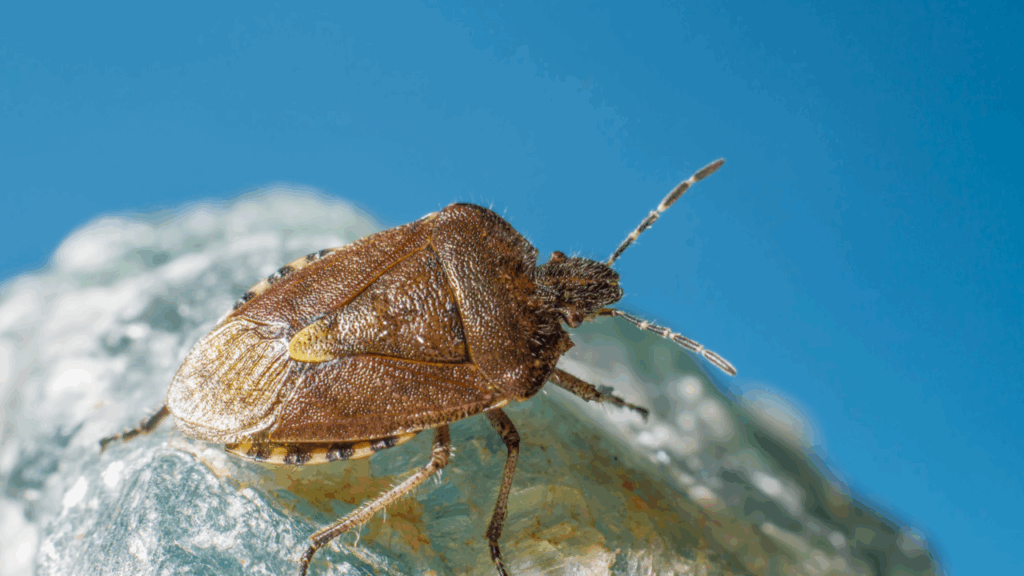What Do Pest Control Companies Use?
by Arnab Dey Business 26 June 2025

What do pest control companies use? When pests invade, most people reach for a spray and hope for the best. However, professionals take a very different approach. Their approach involves science, strategy, and precision.
Basically, professionals know how to select the right pest control chemical. Also, they know how to opt for safer house fumigation chemicals. Read on to get a better idea of what pest control companies use to deal with bugs and pests.
What Do Pest Control Companies Use? – Methods and Treatments
The treatment isn’t one-size-fits-all. In general, professional pest control companies rely on a mix of the following things:
- targeted pest control chemicals
- biological agents
- physical traps
- exclusion tactics
The specific approach depends on the pest species, the severity of the infestation, and the location. Moreover, they check whether children or pets are present in the area. Think of it like a medical diagnosis. Basically, the treatment only works if the diagnosis is precise.
That’s why the best companies treat pest control as a science-backed strategy and not a routine spray job.
1. Chemical Treatments
In general, chemical treatments include residual insecticides, dusts, and aerosols. These are tailored to each pest’s biology. Moreover, roaches and ants respond to gel baits. Meanwhile, mosquitoes require surface sprays and larvicides.
2. Baits
Primarily, professionals pair baits with delayed-action poison with Insect Growth Regulators (IGRs). This way, they disrupt the life cycle of pests like roaches and fleas. Also, in gardens or soil, they utilize biological agents like beneficial nematodes or microbes.
In addition to that, professionals utilize mechanical traps and physical barriers for rodents, spiders, and flying insects in sensitive areas.
Some exterminators employ precision baiting. This way, they let pests carry the treatment back to the colony. Also, they employ microencapsulated sprays that adhere to surfaces and release slowly for long-term control. In some cases, they utilize barrier methods to seal the space for good.
In short, the treatment is never the same twice. The best pros are part biologist, part detective, and part home health strategist. They know when to apply smart baits and when to bring out stronger pest control products, or even fumigation chemicals for the home in extreme cases.
What Do Pest Control Companies Use For Roaches?
The answer: not just spray. Professional exterminators employ a layered approach. This way, they exploit roach behavior, biology, and colony dynamics. In fact, they do not rely solely on brute-force pest control chemicals.
Moreover, gel baits like Advion or Maxforce attract roaches. These carry them back to the nest. Thereby, they silently infect the colony. After that, they pair them with IGRs, like Gentrol. These act as insect growth regulators. This breaks the infestation cycle by preventing reproduction and maturation.
Furthermore, exterminators apply residual insecticides strategically in cracks, crevices, and high-traffic areas. Meanwhile, they carefully avoid baited zones to prevent contamination.
Dusts such as boric acid or diatomaceous earth are helpful in wall voids or behind appliances for slow-acting, long-term control. The key is separation. In fact, professionals employ sprays and dusts in different zones to avoid interference with bait effectiveness.
Most importantly, pros don’t overlook the mechanical side: they vacuum and remove egg casings (oothecae), which many sprays miss. These capsules hatch 30 or more nymphs weeks later, reigniting the problem. Sealing entry points and hidden nesting areas completes the plan.
Most DIY sprays just scatter roaches. The pros bait the engineers, literally, knowing that roaches are smart, cautious, and social. Effective treatment requires a strategy, not merely a product.
What Do Pest Control Companies Use For Bed Bugs?

Bed bugs require a war strategy, not just a treatment. This isn’t a pest, it’s a crisis. Professionals typically combine multiple methods with extreme precision, targeting eggs, nymphs, and adults.
Heat is the gold standard. Whole-room systems raise temperatures to 120-140°F, killing bed bugs at all life stages, including eggs, without the use of chemicals. But the heat must be evenly distributed, because one cold corner means survival.
Residual insecticides are added for insurance, sprayed or dusted into cracks, mattress seams, baseboards, and furniture joints to catch anything the heat might miss.
Moreover, exterminators utilize desiccant dusts, like Cimexa or diatomaceous earth. Basically, these dehydrate bugs on contact and remain effective for months. Hence, they act like a microscopic cheese grater that destroys their waxy exoskeleton. Also, they employ steam for soft furnishings and mattresses, where chemical treatments are limited.
Encasements trap bugs already in the mattress and block future hiding spots, while interceptors help monitor continued activity. Meanwhile, vacuums and regular inspections prevent re-infestation.
Apart from that, professionals know where bed bugs actually hide. These places include inside electrical outlets, baseboard seams, and screw holes.
Hence, professionals do not merely treat the problem. They eliminate it faster and keep it from coming back with the right combination of heat and pest control chemical support.
What Do Pest Control Companies Use For Ants?
With ants, it’s all about trickery, not instant kill. The goal isn’t to wipe out the visible trail but to eliminate the colony at its source, especially the queens.
In those cases, professionals employ gel and granular baits. These include Terro or Advion. Basically, they carefully select formulations based on the species and even the season.
Apart from that, they might utilize dust in wall voids when nests are hidden inside. This is effective against carpenter ants. In those cases, perimeter treatments target entry points, foundations, and landscaping with long-lasting residuals.
Spraying the trail hides the symptom. It doesn’t treat the source. That’s why pros don’t just kill ants. They collapse civilizations using the right pest chemicals at the right time.
Top Bug Sprays And Pest Control Products For Professionals
The secret sauce isn’t the spray, it’s the chemistry. Most professionals employ EPA-approved pest control products. However, these are not available over the counter.
In general, these include elite formulas like Termidor (fipronil). This formula is undetectable and highly effective against ants and termites.
In other cases, they might employ microencapsulated options, like Suspend SC (deltamethrin), Demand CS (lambda-cyhalothrin), and Cyzmic CS. In general, these provide long-lasting control indoors and out.
However, in sensitive environments like daycares or kitchens, they might utilize botanical solutions, like Essentria IC3. Mostly, these are made with essential oils.
However, the real edge isn’t in the product. Actually, it’s in how, where, and why it’s applied. In general, professionals do not merely spray. Rather, they engineer invisible zones of control designed to align with the behavior and biology of pests.
Also, they place products only where pests walk or rest, not applied randomly.
What Do Pest Control Companies Use For Mice?
Forget the cartoon cheese traps. In fact, modern rodent control is smarter. It’s not just about catching mice; it’s about understanding behavior and closing the loop.
Tamper-resistant bait stations with anticoagulant rodenticides like Contrac or FirstStrike are placed along known “runways.” In general, mice follow walls like highways. These baits act slowly, allowing rodents to return to their nests before dying, reducing suspicion among the colony.
Snap traps or electronic traps are used for quick and targeted kills. In general, they come enclosed in boxes to keep kids and pets safe. In areas where lethal control isn’t allowed, live traps offer a humane alternative. But even with the right tools, trapping alone won’t solve the problem.
Exclusion work is non-negotiable. Steel wool, copper mesh, and hardware cloth are used to seal entry points as small as ¼ inch, because mice squeeze through holes the size of a dime and remember old food sources long after they’ve been removed.
In commercial or food settings, techs may also use UV tracking, dust, and motion-activated cameras to locate nests and map rodent movement patterns.
Forget the old mousetrap cliché since this is behavioral science. The most astute professionals think like mice and out-strategize them at every turn, using targeted traps and pest control chemicals when necessary.
Are Pest Control Chemicals Safe At Home?
Smart pest control is all about precision and prevention. True professionals don’t just make treatments safer. They design safety into them from the start.
After that, they apply products with targeted placement. These include cracks, crevices, behind outlets, and under cabinets. Also, they apply mostly inside sealed and tamper-proof bait stations.
In general, low-toxicity and green-certified options are EcoVia and Essentria. Mostly, they come from plant oils, like chrysanthemum or rosemary. Basically, they are helpful in sensitive environments when appropriate.
Moreover, Integrated Pest Management (IPM) is the guiding principle. Essentially, professionals start with inspection, sanitation, and structural fixes. After that, they introduce pest control chemical solutions. This way, they always choose the least toxic method that remains effective.
Apart from that, they also follow strict EPA label guidelines. In addition to that, certified technicians apply every pest control product according to protocol. They also educate homeowners with clear instructions.
So, what do pest control companies use? In short, good pest control companies don’t just eliminate pests. They protect people and peace of mind, even when house fumigation chemicals are necessary for full eradication.
Read Also:



































































































